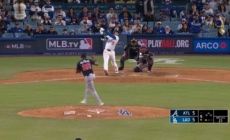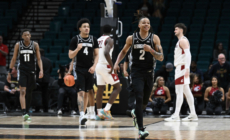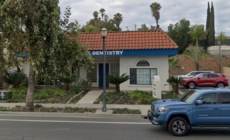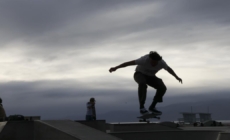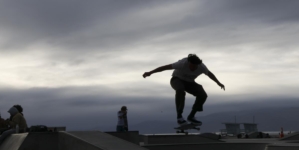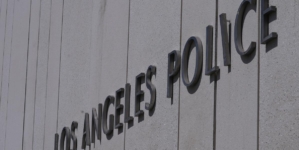-
2025 LIV Golf Miami: Predictions for FOX Super 6 by FOX Sports Research - 27 mins ago
-
Hungary and Serbia boost military cooperation - 31 mins ago
-
Chiefs Replace Joe Thuney, Help Out Chris Jones in Ideal NFL Draft Scenario - 36 mins ago
-
EC President von der Leyen - 56 mins ago
-
Hungary-Slovakia gas interconnector capacity expanded - about 1 hour ago
-
Shohei Ohtani hits walk-off home run on his bobblehead night to keep Dodgers undefeated - about 1 hour ago
-
How to Watch Nebraska vs. Georgetown: Live Stream College Basketball Crown Tournament, TV Channel - about 1 hour ago
-
9-year-old dies after dental surgery. Cause is under investigation - 2 hours ago
-
7 Greatest Spears in WWE History - 2 hours ago
-
Nebraska's Connor Essegian splashes 3-pointer to extend lead against Georgetown - 2 hours ago
LAPD chief ousts lawyer blamed by union for disclosing officer photos
Los Angeles Police Chief Jim McDonnell has axed the head of the department’s constitutional policing office, parting ways with a top lawyer who had drawn the wrath of the police union for her role in the controversial release of thousands of mugshot-style photos of officers.
In the most significant change to his staff since taking over the department, McDonnell ousted Lizabeth Rhodes, the LAPD’s highest-ranking civilian employee. McDonnell informed Rhodes through a subordinate that her services would no longer be needed, according to multiple department sources who requested anonymity because they were not authorized to discuss personnel changes.
“I am grateful for Ms. Rhodes’ years of dedicated service, particularly during some of the Department’s most challenging periods,” McDonnell said in a statement. “Her leadership and contributions played a significant role in shaping the direction of the Los Angeles Police Department.”
Attempts to reach Rhodes at her city-issued phone number were unsuccessful.
Rhodes is expected to remain with the department through June as she takes leave accrued during her tenure, the department sources said.
In her role, Rhodes oversaw the operations of various units, including the Risk Management Legal Affairs Group, Audit Division and Strategic Planning Section. Her office was created in the early 2000s under the U.S. Department of Justice’s consent decree, which mandated reforms to addressed basic problems of accountability that stretched back decades.
A former federal prosecutor appointed by then-Chief Michel Moore in 2019, Rhodes has been a deeply polarizing figure inside the department. Among her backers, she was seen as a no-nonsense, straight-talking leader who had helped steer the department through ever-changing legal issues including traffic stops, press access and news events.
But the powerful Los Angeles Police Protective League frequently targeted Rhodes with stinging criticism in its monthly magazine, including over a policy that limited “pretextual stops” of motorists and pedestrians.
The union, which represents rank-and-file officers, also blamed Rhodes and Moore for releasing thousands of photos of police officers under the state’s public records law in 2022.
The images and other information such as officer pay and rank were handed over to journalist Ben Camacho and the activist group Stop LAPD Spying Coalition, which turned the material into a searchable online database called Watch the Watchers.
Users can look up an officer’s photo using their name or badge number, which the website’s creators called a step toward greater police transparency. Union leaders have blamed Rhodes and Moore for releasing information that put officers at risk, including some who allegedly worked undercover.
After the Watch the Watchers site went live in March 2023, Moore said he was unaware of the photo release until it had already happened. He issued an apology and ordered an internal investigation. The LAPD inspector general’s office launched a separate probe.
At the time, Mayor Karen Bass called the release “an unacceptable breach that put the lives of our officers and their families at risk.”
More than 300 officers filed a lawsuit against the city, alleging their families had also been placed in danger. The city, in turn, sued Camacho and Stop LAPD Spying, trying to claw back the photos.
Officers who signed on to the legal challenge against the city — numbering in the hundreds and listed as John Does — have argued the release put scores of LAPD employees in harm’s way, particularly those working in sensitive assignments who have to go to great lengths to disguise their identities.
In November, however, the city conceded in court filings that the vast majority of the officers involved were not truly undercover. The case against Camacho and the Stop LAPD Spying Coalition was thrown out in court, and the city was ordered to pay $300,000 in legal fees. The litigation by the officers against the city remains pending.
Department lobbyists have since pushed for changes to state law to prevent similar disclosures in the future.
The city has denied public records requests by The Times for communications sent and received by Rhodes and Moore about the release of the photos.
Before coming to the LAPD, Rhodes worked in the local U.S. attorney’s office alongside Eileen Decker, who would later serve on the LAPD’s Police Commission.
Rhodes prosecuted several high-profile cases, including that of former L.A. County Sheriff Lee Baca, convicted in 2017 of thwarting a federal investigation for his role in keeping an informant out of the reach of his FBI handlers and away from a grand jury.
Her job at the LAPD was to ensure officers followed the law, but activists bemoaned what they saw as her unwillingness to push for transformative change.
The police union, meanwhile, accused Rhodes and other department leaders of kowtowing to progressive interests and making it harder for cops to do their jobs.
In recent weeks, signs began to appear that Rhodes had apparently fallen out of favor with McDonnell.
She was rarely seen around police headquarters and replaced at a recent presentation before the Police Commission by her predecessor as constitutional policing director, Arif Alikhan.
Alikhan had been brought to the department last year to work on “risk management and harm reduction strategies, Department programs, and other critical issues.” He was paid a $240,000 salary over six months, thanks to a donation by the Police Foundation
Source link





